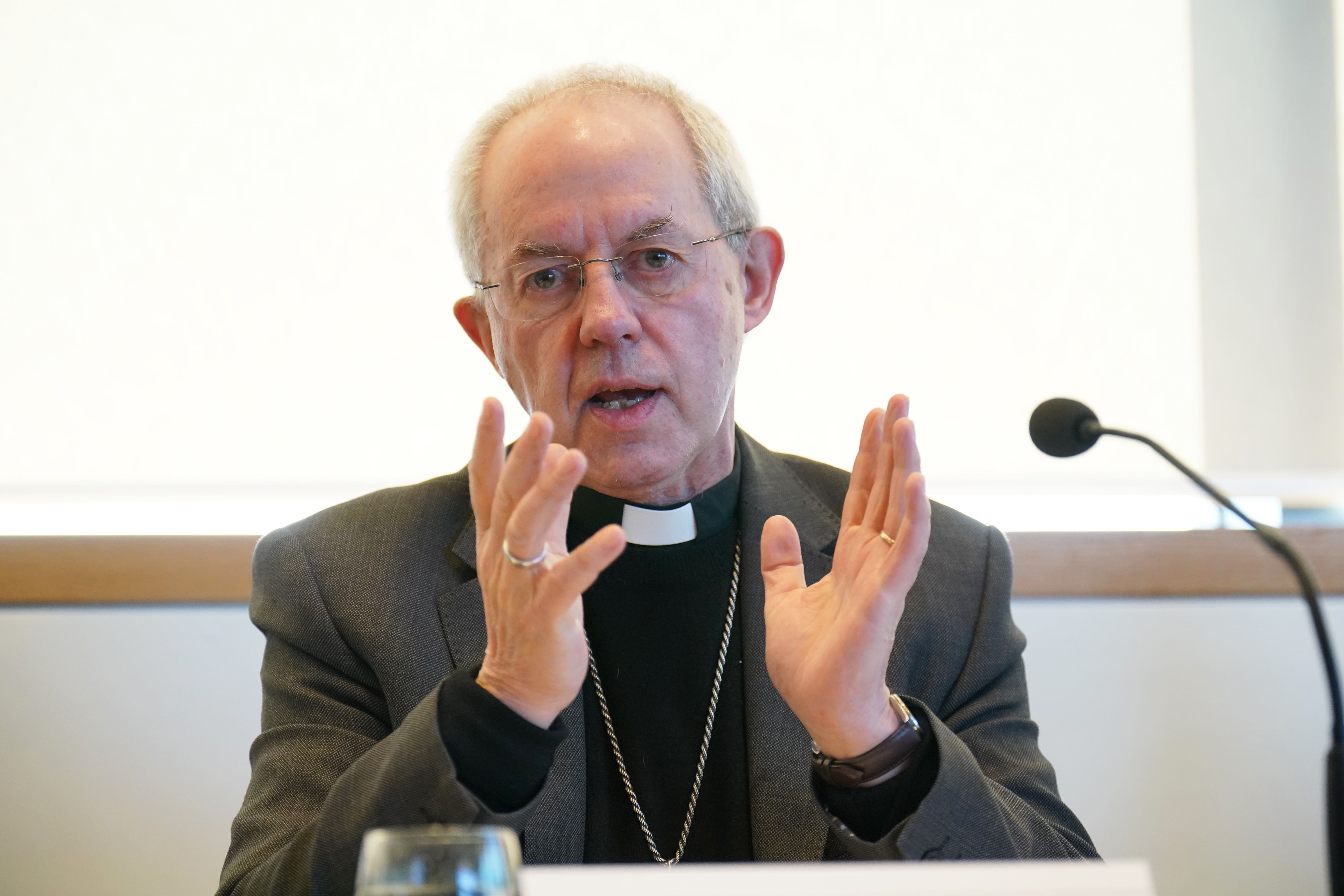Justin Welby: Deal to end war must not treat Russia like Germany in 1919
An end to the war must be fair for Ukraine and not harsh on Moscow, the Archbishop of Canterbury has warned.

Your support helps us to tell the story
From reproductive rights to climate change to Big Tech, The Independent is on the ground when the story is developing. Whether it's investigating the financials of Elon Musk's pro-Trump PAC or producing our latest documentary, 'The A Word', which shines a light on the American women fighting for reproductive rights, we know how important it is to parse out the facts from the messaging.
At such a critical moment in US history, we need reporters on the ground. Your donation allows us to keep sending journalists to speak to both sides of the story.
The Independent is trusted by Americans across the entire political spectrum. And unlike many other quality news outlets, we choose not to lock Americans out of our reporting and analysis with paywalls. We believe quality journalism should be available to everyone, paid for by those who can afford it.
Your support makes all the difference.An end to the war in Ukraine cannot see Russia treated like Germany after the First World War, the Archbishop of Canterbury has warned.
Justin Welby, writing in The Daily Telegraph newspaper as Ukraine marks the one-year anniversary of the Russian invasion, also said that Kyiv must not be forced into a “Munich Agreement-like compromise”, a reference to the doomed settlement that failed to prevent the Second World War.
“Provided a just peace between Russia and Ukraine can be achieved, there must be a security structure that makes another war unlikely,” he said.
“Russia cannot end up like Germany after 1919; it must be able to recover and be secure without being allowed to repeat its aggression.
Justice is the call of Old Testament and New: peace, swords – or tanks – into ploughshares is the vision of Isaiah
“The great powers must find ways, ideally through a conference, to design the conditions for long-term security, as was done in 1945. Today, it must be done for a new century, including UN reform, while the cost of conflict is fading from most European memories.”
The Treaty of Versailles, signed in Paris in 1919, was seen as humiliating by many Germans and some historians argue that it created an enduring bitterness that helped the Nazis rise to power.
But the Archbishop also urged world leaders not to force Ukraine into an “unjust peace”, as he spoke about the impact of visiting Kyiv.
“Justice is the call of Old Testament and New: peace, swords – or tanks – into ploughshares is the vision of Isaiah.
“Everyone eating the grapes from the vines they planted, and living in the house they built, is the promise of the prophet Micah.
“At the heart of Christian faith is the vision of God who so loved the world that he sacrificed himself for it, so there may be peace and reconciliation.
“In times of peace, we dream of such things. In times of war, we must strain every sinew to bring peace with justice, and start the generational process of healing hatred and rebuilding community among nations.”